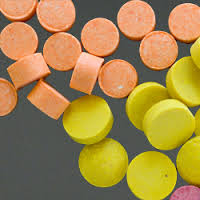Hallucinogens Tolerance, Addiction and Dependence
Hallucinogens are a group of drugs that alter a user’s perception of the world around them and of reality. Many cause auditory and visual hallucinations, where people either see reality distorted or even see entirely new images. They distort the perception of space and time for users, and have been known to cause synesthesia. Synesthesia is a perceptual mixing of sensations where people may ‘see’ scents or ‘feel’ colors.
Some of the most well-known hallucinogens are LSD (acid), psilocybin (magic mushrooms), peyote, and PCP. Though they are all considered illegal substances, people abuse these drugs for their psychedelic effects. Some people also use them, notably peyote, in religious ceremonies. Abuse of hallucinogens is dangerous as their effects are largely unpredictable and can be very traumatizing. Another reason that hallucinogens abuse is dangerous is that it is possible to grow tolerant to them, dependent on them, and in some cases develop a hallucinogen addiction.
Hallucinogens Tolerance

PCP is the most addictive hallucinogenic drug. It is found in several forms, including pills and powder.
According to Bryn Mawr College, hallucinogenic drugs exhibit cross-tolerance. Cross-tolerance means that someone who uses hallucinogenic drugs develops a higher tolerance to hallucinogens as they are used more and as the time span between the last use shortens. Tolerance refers to the need to take more and more of the drug to reach the same high, or level of intoxication, that was previously achieved.
Developing a tolerance to hallucinogens is dangerous. The National Institute on Drug Abuse warns that this is especially dangerous in LSD and hallucinogens in general because of the unpredictability of their effects.
Hallucinogens Dependence
Developing a dependence on a certain drug or type of drugs means that you feel that you need the drug to function, or at least that you see it as an important part of your life. Some people do develop a dependence on hallucinogens. This dependence is usually psychological, where a person will have a perceived need to take the drug and may experience anxiety when they cannot access the drug. On the other hand, in the case of PCP or ketamine the dependence can be physical, according to Better Health Australia. If a person stops taking either of these drugs after becoming dependent on them they will most likely experience withdrawal symptoms.
Are Hallucinogens Addictive?
Though hallucinogens, especially LSD, are known to create tolerance in users, most are generally not considered to be addictive. This is the case for LSD, peyote, and psilocybin. According to the National Institute on Drug Abuse, LSD is not considered to be addictive because it does not produce compulsive drug-seeking behavior. The drug’s effects are so intense that people generally wait some time to take it after a particular time.
PCP, on the other hand, is an addictive drug. Repeated use of PCP leads to drug cravings and compulsive drug-seeking behavior. The Department of Justice also reports that PCP dependence is possible, and that the dependence is mostly psychological. Signs of PCP addiction include the psychological withdrawal symptoms of extreme depression and psychosis. PCP is a white crystalline powder that is readily soluble in water and that is injected, snorted, or ingested. PCP addiction treatment usually consists of inpatient, residential care that involves antidepressants and counseling.
- Related Articles
 4 Signs that Your Teenager is Addicted to Drugs -
When your child enters their teenage years, they go through a lot of changes and it can be hard to tell if something is wrong if wrong with them. Drug addiction usually presents the same symptoms in teens as there are in adults. However, there are a few noticeable signs that are more common in ...
4 Signs that Your Teenager is Addicted to Drugs -
When your child enters their teenage years, they go through a lot of changes and it can be hard to tell if something is wrong if wrong with them. Drug addiction usually presents the same symptoms in teens as there are in adults. However, there are a few noticeable signs that are more common in ...  10 Reasons to Not Use Hallucinogens during the Holidays -
Using hallucinogens during the holidays can lead to a variety of negative outcomes, of both a temporary and permanent nature.
10 Reasons to Not Use Hallucinogens during the Holidays -
Using hallucinogens during the holidays can lead to a variety of negative outcomes, of both a temporary and permanent nature.  How Hallucinogens Affect the Brain -
Hallucinogenic drugs create some very fascinating, albeit scary, effects such as hallucinations, alterations in perception, and more. They do so by interacting with chemicals in the brain.
How Hallucinogens Affect the Brain -
Hallucinogenic drugs create some very fascinating, albeit scary, effects such as hallucinations, alterations in perception, and more. They do so by interacting with chemicals in the brain.  3 of the Most Commonly Abused Hallucinogens -
Taken for their hallucinogenic and perception-altering effects, these drugs are all illegal, and all have the potential to lead to very serious negative consequences.
3 of the Most Commonly Abused Hallucinogens -
Taken for their hallucinogenic and perception-altering effects, these drugs are all illegal, and all have the potential to lead to very serious negative consequences.  How to Deal with a Bad Trip -
According to the National Institute on Drug Abuse, a bad trip is a negative experience while taking a hallucinogen. When you are addicted to hallucinogens, the likelihood of this phenomenon increases. Although most hallucinogens are not physically addictive, they are all psychologically addictive. If you are addicted to hallucinogens, the chances are you will experience ...
How to Deal with a Bad Trip -
According to the National Institute on Drug Abuse, a bad trip is a negative experience while taking a hallucinogen. When you are addicted to hallucinogens, the likelihood of this phenomenon increases. Although most hallucinogens are not physically addictive, they are all psychologically addictive. If you are addicted to hallucinogens, the chances are you will experience ...